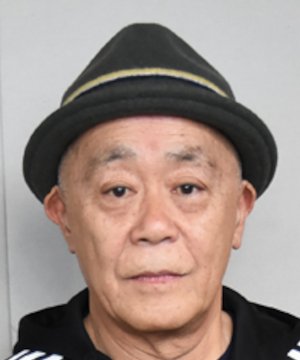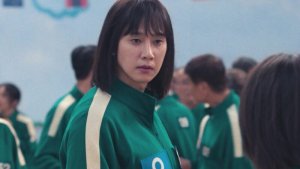Hiroki Ryuichi
- Name: Hiroki Ryuichi
- Native name: 廣木隆一
- Also Known as: Hiroki Ryuuichi, ひろきりゅういち, 広木隆一
- Nationality: Japanese
- Gender: Male
- Born: January 1, 1954
- Age: 71
Of the directors who have graduated from “pink film” to the mainstream, Hiroki has remained perhaps the most faithful to his origins: he continues to make films on sexual themes, though titillation has given way to analysis. In the eighties, after serving as assistant to prolific “pink” director Genji Nakamura, he made pornographic films for both straight and gay audiences; likewise, his first mainstream feature, 800 Two Lap Runners (1994), explored both hetero- and homosexual feelings in its account of the awkward relationship between a teenage runner and the former girlfriend of the dead trackmate with whom he once had a sexual experience.
Hiroki’s next film, Midori, was another drama about adolescent emotions, focusing on a disaffected high school girl who feigns illness to spend time with her boyfriend. Female protagonists continued to be central to Hiroki’s most interesting work, which dealt with young adults and with their sexual conduct in the fragmented society of modern urban Japan. Tokyo Trash Baby, Vibrator, and Girlfriend: Someone Please Stop the World were all moving, understated films about lonely, alienated women seeking solace in romantic fantasy and transient attachments.
Hiroki shot these films on digital video, and his informal style, with its loose compositions and low-key performances, effectively dramatized the haphazard lives of his protagonists, insecure both in work and relationships. Darker and more melodramatic in the plot was L’Amant (2004), a coolly observed account of a teenage schoolgirl who sells herself for a year as a sex slave to three brothers. By refusing to pass judgment on the perverse actions it depicted, Hiroki’s detached style forced the viewer to confront his own taboos. The director again explored the extremes of sexual behavior in M (2006); described by Jasper Sharp as “a Belle de Jour for the internet age,” it charted the experiences of a housewife who begins to work as a prostitute after receiving an email from a dating website.
Besides these troubling and emotionally complex films, The Silent Big Man was an unexpectedly chaste academic work, set safely in the past, and prettily photographed against the scenic backdrops of the Inland Sea. Recalling Keisuke Kinoshita in its story of a mute teacher assigned to an island school, it lacked Kinoshita’s skill for melodrama, and though Hiroki’s dry style restrained its sentimentality somewhat, he seemed ill suited to the material.
Happily, with It’s Only Talk, a subtly compelling chronicle of the life of an unemployed thirty-something woman suffering from manic depression, Hiroki returned to his more fruitful preoccupation with the problems of contemporary urban life. Here his use of locations in Tokyo’s down-at-heel Kamata district was especially well judged, anchoring the drama in a near-documentary record of a specific place. Love on Sunday, meanwhile, revisited the territory of the director’s earliest mainstream features, exploring adolescent emotions as it charted a teenage girl’s last 24 hours in her country home. In his recent work, Hiroki has proved himself one of the modern Japanese cinema’s most intelligent students of character, as well as one of the most precise analysts of Tokyo’s twenty-first-century zeitgeist and Japan’s twenty-first-century malaise.
(Source: A Critical Handbook of Japanese Film Directors) Edit Biography
Director
Screenwriter & Director
| Title | Rating |
|---|---|
| Marmalade Boy | 7.3 |
| Umibe no Machi de | 8.0 |
| River | 6.8 |
| Bokura wa aruku, tada soredake | 6.7 |
Producer
| Title | Rating |
|---|---|
| Turkey no 48-jikan | 0.0 |
| Lower Body Syndrome | 0.0 |
Assistant Director
| Title | Rating |
|---|---|
| Koshoku Hana Densha | 8.0 |
Movie
| Title | Rating |
|---|---|
|
Crank
Japanese Movie, 2023,
(Support Role)
|
0.0
|
|
Ririka of the Star
Japanese Movie, 2022,
Taizo
(Support Role)
|
0.0
|
|
Piece of Cake
Japanese Movie, 2015,
[Movie director]
(Guest Role)
|
6.9
|
|
Tokyo Soda Water
Japanese Movie, 2008,
(Main Role)
|
6.0
|
|
Itai Futari
Japanese Movie, 2002,
(Support Role)
|
7.0
|
|
The Mars Canon
Japanese Movie, 2002,
(Support Role)
|
8.0
|
Trending Articles
'When the Phone Rings' sparks outrage for misrepresentation of Israel-Palestine conflict
A scene from the final episode of When the Phone Rings sparks outrage among international viewers
Zhao Lusi breaks silence on suffering from depression and physical abuse
Zhao Lusi publishes a post on her Weibo explaining all she has been going through
'When the Phone Rings's Yoo Yeon Seok on why the K-drama became immensely popular
Read the interview excerpts of When the Phone Rings actor Yoo Yeon Seok
'Squid Game Season 2' Park Sung Hoon under controversy for an adult material post on Instagram
Park Sung Hoon is getting criticized for an Instagram story he posted.
Chinese actress Zhao Lusi, global girl group VCHA's KG, and the so-called 'slave contracts'
Chinese actress Zhao Lusi's plight mirrors that of global girl group VCHA's KG, but the two women are on the opposite end of the spectrum
Former BIGBANG's T.O.P. to address Korean media regarding his 'Squid Game Season 2' role
Former BIGBANG member T.O.P also known as Choi Seung Hyun will finally meet the Korean media to discuss his recent work, Squid Game Season 2.
Dylan Wang's 'Guardians of the Dafeng' lands on Tencent's annual rankings list
Guardians of the Dafeng's popularity continues to rise despite mixed reviews
'When the Phone Rings' scores new personal-best ratings
Check out the ratings of Friday-Saturday K-dramas When the Phone Rings and Love Scout


















